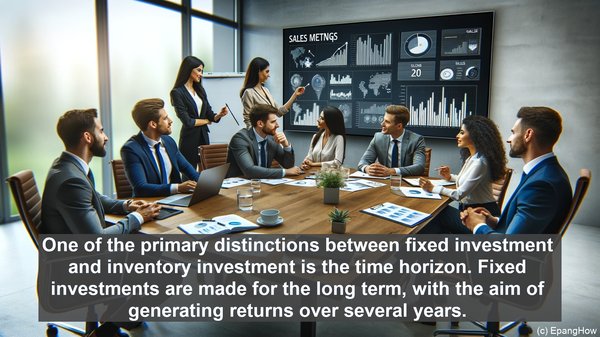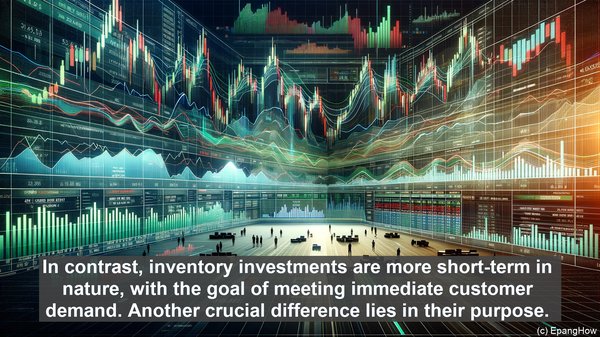Introduction: The Essence of Investment
Hello, and welcome to our article on fixed investment and inventory investment. When we talk about investment, it’s not just about buying stocks or bonds. In the business world, investment takes on various forms, and two key types are fixed investment and inventory investment. While they may seem similar, they have distinct characteristics and implications. Let’s dive deeper.

Fixed Investment: Building for the Future
Fixed investment, as the name suggests, involves investments in fixed assets. These are long-term assets that a business acquires to enhance its productive capacity. Examples include machinery, buildings, and vehicles. Fixed investments are typically substantial and require careful planning. They are not easily liquidated and are expected to generate returns over an extended period. For businesses, fixed investment is all about expanding, modernizing, and staying competitive.
Inventory Investment: Balancing Supply and Demand
Inventory investment, on the other hand, pertains to the stock of goods a business holds. It includes raw materials, work-in-progress items, and finished products. Inventory investment is crucial for ensuring smooth operations. Too little inventory can lead to stockouts and lost sales, while excessive inventory ties up capital and incurs holding costs. Businesses strive to strike the right balance, often using sophisticated inventory management techniques and software.

Key Differences: Time and Purpose
One of the primary distinctions between fixed investment and inventory investment is the time horizon. Fixed investments are made for the long term, with the aim of generating returns over several years. In contrast, inventory investments are more short-term in nature, with the goal of meeting immediate customer demand. Another crucial difference lies in their purpose. Fixed investments are about capacity and capability, while inventory investments are about ensuring availability and responsiveness.
Implications for Businesses
The choices businesses make regarding fixed investment and inventory investment have significant implications. Fixed investments, being long-term commitments, require careful analysis of market trends, demand projections, and financial feasibility. They can shape a company’s competitive position and determine its ability to meet future demand. On the other hand, inventory investments impact a business’s agility and its ability to fulfill customer orders promptly. Efficient inventory management can reduce costs and improve customer satisfaction.
